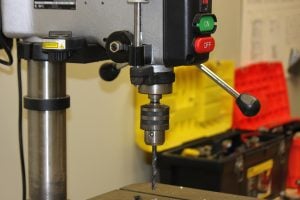Johns Hopkins University’s Medical Devices Graduate Program Emphasizes Biomedical Innovation and Design

As the longest-tenured medical devices graduate program in the nation, Johns Hopkins University’s Center for Bioengineering Innovation and Design (CBID) offers a unique opportunity for biomedical engineers in training. Students in the CBID program first complete clinical rotations at Johns Hopkins Hospital, followed by a global health trip where they can identify real-world challenges faced by patients and physicians. Throughout the remainder of the program, students work with esteemed faculty and industry advisors toward the development of a medical device to help create practical solutions for these issues.
During this hands-on prototyping project, students work in teams based on areas of interest to design, test, and produce a medical device. Students have access to a world-class lab for all of their brainstorming sessions, prototype testing, and videoconferencing with industry professionals. At the end of the program, each team will present their prototype at the CBID’s annual Design Day showcase and answer questions from faculty members, industry professionals, program alumni, and more.
Along with developing this prototype, students must create a marketable business plan that outlines the commercialization of the product, including details about regulatory process planning, financing, resources, and more. In this way, students learn more than just how to design and engineer a medical device but also how to launch their product into the healthcare market logically and legally.
What Medical Devices Have Been Developed in the Program?
Some of the devices developed by CBID graduate students include:
- InteleCare – a telemedicine system built on a robust patient data management system
- INFORM – an infant monitoring system for use in third world countries
- PhySim – a labor training solution for nursing and midwifery students
- CardioON – a home monitoring system for heart failure management
- Tremtex – a neurostimulation device for treating the symptoms of Parkinson’s disease
CBID alumni have been awarded more than $5.8 million in prize/grant money for their medtech inventions. Many students have gone on to be involved in biomedical innovation start-ups after graduation, while others have launched careers in consulting, bioengineering, academia, and other related fields.
How to Apply
The CBID medical devices graduate program welcomes online applications through January 1. An undergraduate degree in mechanical, chemical, electrical, or materials engineering is helpful, although not required, to be considered for our biomedical innovation program. We also encourage applicants with backgrounds in bioengineering, pre-med studies, and other related fields.
Please fill out the form below if you have additional questions.


